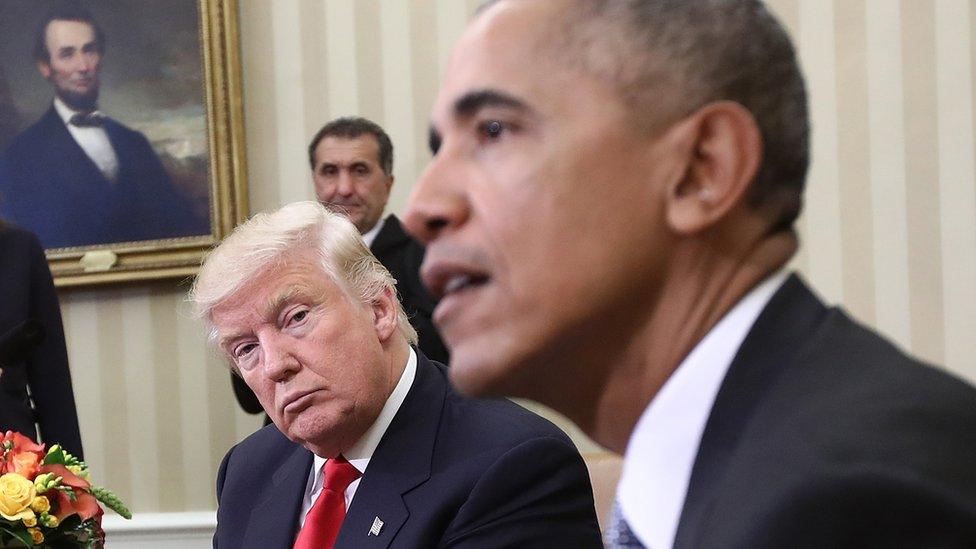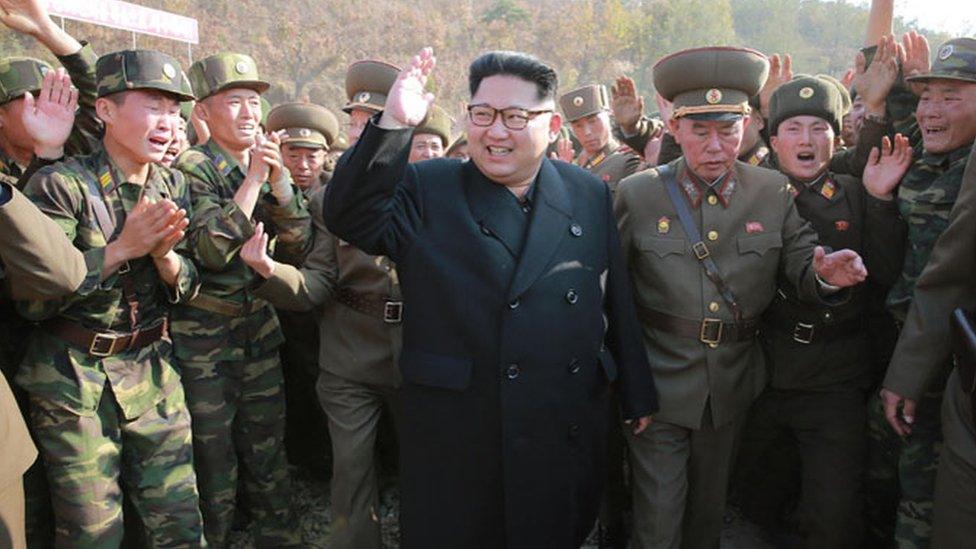North Korea makes first mention of US election result
- Published

It took a week for Pyongyang to mention Donald Trump, rather longer than his predecessor
North Korea has made its first indirect comment on the result of the US presidential election, one week after American voters went to the polls.
The first mention of Donald Trump's victory appeared in a news report on a different matter entirely - and then only as a means to attack Pyongyang's sworn enemy, South Korea.
Hidden deep down in a commentary calling for the resignation of embattled South Korean President Park Geun-hye, state news agency KCNA refers to her ruling Saenuri Party making use of a "Trump emergency system" to divert the public's attention away from the current cronyism scandal threatening Ms Park's leadership.
In the same report, headlined "South Korea leader 'bound to get buried' over scandal", KCNA goes on to make its first mention of last week's election, saying Ms Park and her followers were making a "bid to use even the US presidential election as an emergency measure" to escape impeachment.
Mr Trump is mentioned entirely without context, with no explanation to readers who or what "Trump" might be, and Korea-watchers will have to go back to June this year to find his last meaningful mention by Pyongyang.
It is thought state media will increase mentions of Mr Trump in the coming days after describing incumbent US President Barack Obama's presidency as "completely failed" at the beginning of November.
Outside voices banned
The only previous mention of Donald Trump in North Korean media this year was on 1 June when government-controlled newspaper Rodong Sinmun said the South Korean authorities were "getting worried" about his position as Republican Party nominee.
Mr Trump had said at the time that Seoul should pay for its own defence against the North.
Even then the story was a stick to beat South Korea, arguing that Seoul should stop "kowtowing" to Washington and "stop acting as stooges to outsiders".
In May, Mr Trump said he would be willing to meet North Korean leader Kim Jong-un to discuss the country's nuclear programme. In remarks which went unreported in North Korea, Mr Trump said "I would speak to him, I would have no problem speaking to him".
Not mentioning major world events is typical behaviour for media in North Korea which are geared almost entirely towards the worship of the Kim family.
Mention of south Korean society and politics ("south" is always lower case in the North which claims to be the legitimate government of the entire peninsula) is always in disparaging terms and Pyongyang is almost gloating in its coverage of the political scandal currently engulfing Seoul.
News of the election of Mr Obama in 2008 was similarly delayed by the North's tightly controlled media, where access to outside voices is banned.
However, North Koreans only had to wait three days back then to learn Mr Obama had defeated Senator John McCain.

North Korea's media heap praise on the country's leadership on a daily basis
BBC Monitoring, external reports and analyses news from TV, radio, web and print media around the world. You can follow BBC Monitoring on Twitter , externaland Facebook, external.